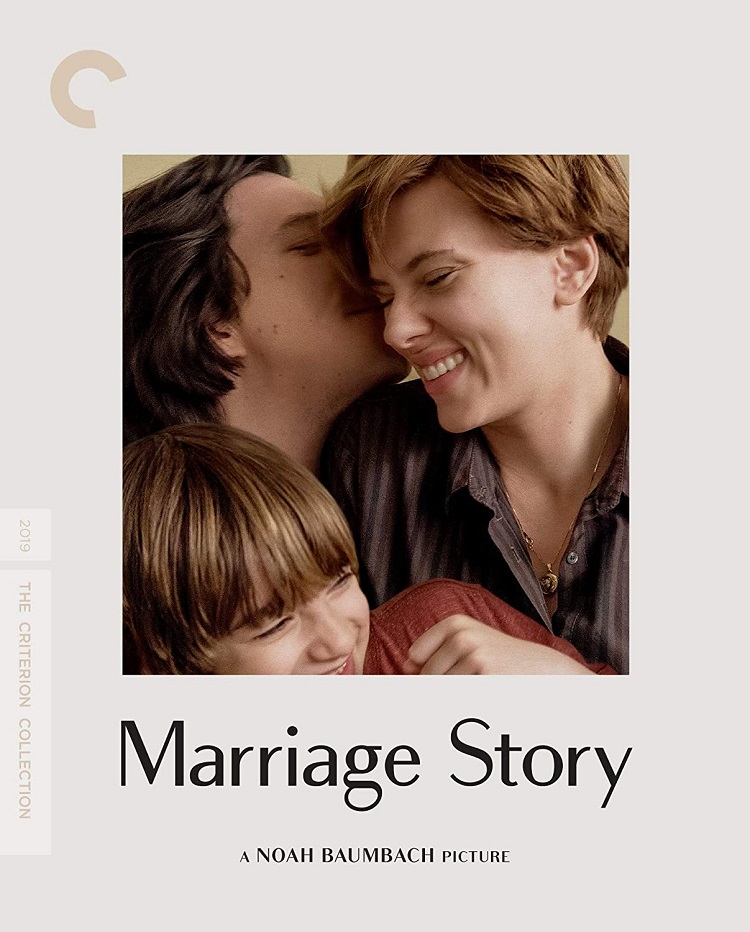
Written by Sai Sagar
Noah Baumbach’s Marriage Story starts with the over-the-top dramatic score by Randy Newman and then enters the star Nicole (Scarlett Johansson) in the most dramatic way possible, the first few lines are in the form of a first-person voice-over by Charlie (Adam Driver) telling us why he loves Nicole. You will almost feel like you are watching a documentary or a television show because of the aspect ratio this film plays out in. This whole sequence unfolds in like an overture in a play. Then the perspective of the wife follows and she says, “He is competitive,” and he says the same about her. We realize that they are with a therapist, and Nicole denies reading out what she was asked to write. But with these perspectives by them, within no time we understand who these people are and what they are about to get into. Nicole seems like finding reasons to leave Charlie but he seems like a perfect family man.
Soon, the news of their separation gets all over. “I feel like my parents are splitting up,” a person in Charlie’s troupe remarks. And then comes the New York and Los Angeles debate. “There is no space in here,” another person in the group says to Nicole. I feel that’s exactly the problem with their relationship, it lacks personal space. “He didn’t see me as something separate from himself,” Nicole says at one point. Both of them take the subway home and both of them, even though facing each other, ignore each other as strangers. There is one particular shot in this sequence in which there are the poles in between them and both of them are in deep thought, almost signifying that they are poles apart. But no matter how independent Nicole craves to be, she cares about Charlie and she takes him and his opinions seriously. She asks his opinion on the pilot of her new show, which he diplomatically denies giving. Now from the hustle-bustle of NY, the story moves onto the L.A. summers.
In L.A., Nicole is in her comfort zone. She has a team constantly singing her praises, the career she has been craving for, and finally gets rid of her controlling husband. She then meets Nora (Laura Dern), who plays the devil’s advocate in their divorce. Charlie and Nicole decide that they don’t want to involve the lawyers. They want equal custody of their son Henry and to resolve the separation amicably. Nora influences Nicole to use her toxic femininity to get more custody of Henry and also a part of MacArthur’s Grant won by Charlie. From then on, both these parents get into a rat race and see this case as a winning or losing game. This is a relationship in which Nicole’s self-worth is questioned and Charlie is presented as a toxic and controlling partner. But as the story proceeds, we realize that both of them did terrible things to keep up their relationship and now are doing terrible things to get separated. There is a scene in which Nicole’s sister hands Charlie the envelope with divorce papers which is hilarious.
Both of them get into a rampage instead of looking for reasons to stay together. They don’t even want to take their child Henry’s opinion or understand him or explain to him what they are going through. Instead, they treat him like possession and whoever gets custody or major holidays with him enjoys the success of winning the case. In between the moments of ugly fights, they find moments of passion and love they shared for each other, yet they return to the possessiveness as winning is important. How they are as a husband and wife is not portrayed in great detail but one thing which feels true about them is both are terrible parents to this kid. Just before getting into a deep theatrical argument with Charlie, Nicole says about Henry, “He is stubborn, just like us.” They are not happy about this divorce. It’s costing them money and brings them no happiness, but they are indifferent to it. All they want is to win.
At the end of the day, Charlie and Nicole are a couple who bring their theatricality home without leaving it at work. This film hits the nail with the monologue on traditional gender roles delivered by Nora. She says, “We can accept an imperfect dad, but we cannot accept an imperfect mother”. I just wish it had done the same with parenting too because in an attempt to be successful as individuals, both of them fail to be good parents. Charlie doesn’t understand when Henry says he is tired; Nicole is constantly taking him somewhere almost hiding him from Charlie as some possession. “Can I rest for a while?” he says to his dad and leaves the room when Charlie is taking to the evaluator who came to see them. That’s what you as the audience will feel at that point.
Marriage Story could’ve been great if the attention to these small details has been paid, and the narrative was explored giving equal importance to both the protagonists. But even with all this, the film remains pretty depressingly entertaining to watch. Both Scarlett Johansson and Adam Driver are nominated for the Golden Globes, and the ensemble has already won the Robert Altman Award from the Spirit Awards, such is the brilliance of this character-based drama. But one question is still troubling me by the end, would it have worked if they had decided to talk to each other, to listen to the things they wrote about each other, and tried to save their marriage or make the divorce more amicable? Well, I leave that for you to decide.